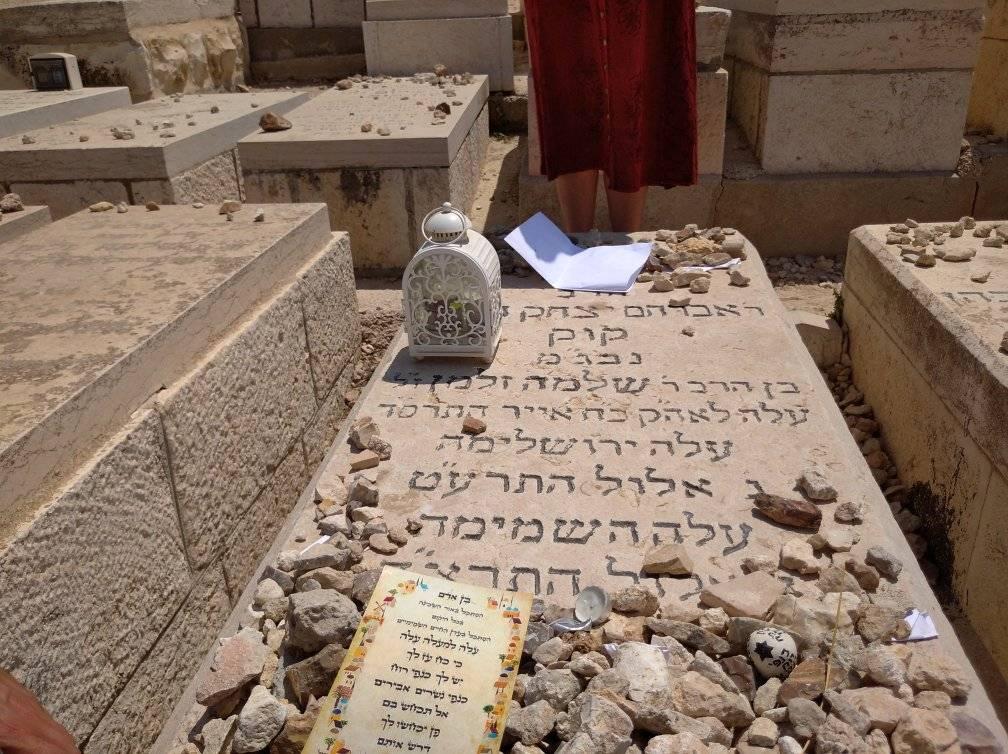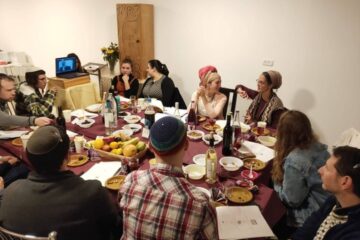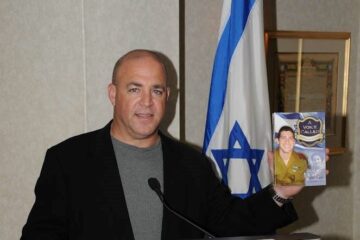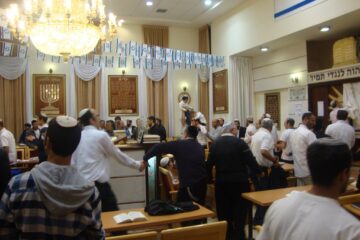There are certain circles that you will find Rav Kook ZT”L completely omitted from the lexicon of Gedolim. His saintly picture is not among the great Rabbis of modern times and his expansive Sforim (books), “Sha”s Halavan,” are missing from the bookshelves of certain Shuls and Torah Study Halls. After an initial reaction of bafflement, I understand this decision completely. The soul, the mind, the character of “man” who resembled an angel much more than he did a human being brings with him difficult challenges for people and communities living in a finite world. In all truth, how is it possible to handle a posek, a tzaddik – the first Chief Rabbi of Eretz Yisrael, that put truth, honesty, integrity, love for the Jewish people and love for his antagonists, tzadaka and chessed, humility and selflessness above any hint of politics, honor, self earned scholarship and acclaim, positioning, control and authority?
In my mind, Rav Kook goes hand in hand with the miracle of the Jewish People returning to our land. Am Yisrael returned to Eretz Yisrael after 1800 years of exile in the diaspora on the shoulders of a remarkable gadol – spiritual giant. Rav Kook was chosen in Shamayim to undertake this great mission of teaching and inspiring our nation at this important juncture. (It is fascinating to note that Rav Kook did not “make aliya” in 1904 on his own; he was brought to be Rav of Yaffo by R’ Yoel Moshe Soloman, an important figure in Eretz Yisrael at the time.)
Rav Kook is a most fitting match for Chodesh Elul. He was both born and passed away in Elul. His yertzight on the 3rd of Elul, falling at the beginning of the month of Teshuva, is a gift to those that attempt “to seek to return.”

As Rav of Yerushalayim, Rav Kook made it his practice to keep his doors open for visitors and those seeking help. There were no official reception hours in the Kook home. People would come and go, study, take books and ask the Rav questions. Eliezer Ben Yehuda Z”L, among many other secular scholars who sought Rav Kook’s wisdom and knowledge, would frequent the Rav’s home with linguistic questions. It was known to all that no one had greater command of the Hebrew language and literature (Lashon Hakodesh) than Rav Kook.
On the second day of Chanukah in 1922, Eliezer Ben Yehuda entered the Rav’s home while Rav Kook was learning, and began asking questions on the etymology of certain words. After the Rav gave his thorough explanations both from the revealed and hidden parts of Torah, he looked at Ben Yehuda and said, “Mr. Ben Yehuda, perhaps time has come for you to repent?” The father of the Hebrew language responded, “Perhaps.” With that, the conversation came to an abrupt end; Ben Yehuda walked out and the Rav continued studying.
That very evening, hours later, Eliezer Ben Yehuda passed away. R’ Yitzchak Arieli Z”L, who was the Rav’s study partner and witnessed this exchange explained, “Ben Yehuda’s response of ‘perhaps’ had the status of ‘thoughts of repentance’ which are considered like actual repentance.” (Kiddushin 49b) (This story was taken from An Angel Among Men, Simcha Raz)
One of the remarkable events of Rav Kook’s life was the Teshuva Campaign that he led in the Fall of 1913. Gathering some of the great Rabbis of Eretz Yisrael, the group set out to strengthen the faith Torah and Mitzvah observance of Jewish settlements throughout the land. In just over a month, the group was able to reach over some twenty five settlements in Eretz Yisrael. The campaign proved to be tremendously successful and countless communities and individuals returned in Teshuva to one extent or another. The root of Rav Kook’s successful Teshuva Campaign is clear. When great rabbis lovingly extend themselves to other Jews, added connection to Torah, observance and Yiddishkight is inevitable.
Rav Kook’s literary works include every part of Torah. He is among the most prolific writers of modern Jewish history. Rav David Aaron, founder of Israelight and expert in the Rav’s writings, once commented that Rav Kook rarely included sources for his teachings because the entire Torah rested before Rav Kook and the entirety of the Torah entered into producing the teachings of the Rav. For that there is no specific source.
Orot HaTeshuva is among Rav Kook’s most novel and unique contributions to the Torah library. Even after thousands of years of discussion and ideas involving Teshuva, Rav Kook added original dimensions to the spectrum of Teshuva philosophy. In addition to the more common, individual-focused realms of Teshuva, Rav Kook speaks at great length, in beautiful poetic language, of national, global and universal Teshuva.
The Rav opens the 27th and final chapter of Orot HaTeshuva with the following statement, “The renascence of the (Jewish) nation is the basis for the structure of great repentance.”
It is clear that Rav Kook both witnessed and contributed to “The Renascence” of the Nation of Israel with our return to Eretz Yisrael. Realizing a most wonderful reality in front of his eyes, Rav Kook spent much of his adult career building, bolstering, nurturing and unifying the miracle of Jewish return to our Home-Land. He understood, appreciated, and proclaimed to the world the significance of national, wide-spread returning to the Land as playing a crucial role within the process of “ultimate return” and Final Redemption – גאולת עולמים. God chose this great rabbi and leader to escort the Jewish People back to Eretz Yisrael.
And may all of Rav Kook’s prophetic teachings and vision come to fruition soon in our time!



0 Comments